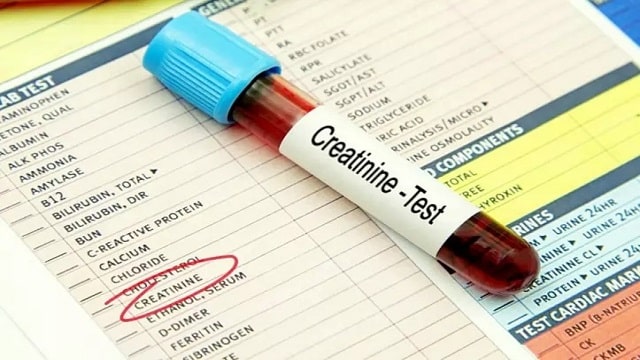Creatinine Check
A creatinine test is a test that reveals important information about a person’s kidney health. Creatinine is a chemical waste product produced by muscle metabolism and to a lesser extent by meat consumption.
Healthy kidneys filter creatinine and other waste products from the blood. The filtered waste products are excreted from the body in urine.
However, if the kidneys are not functioning properly, creatinine levels will increase because they accumulate in the blood.
A serum creatinine test measures the level of creatinine in the blood and gives an idea of how well the kidneys are filtering (glomerular filtration rate). A creatinine test measures the level of creatinine in the blood.
When Should You Check Creatinine?
How often a creatinine test needs to be done depends on the underlying condition and the person’s risk of kidney damage. For example:
- For people with type 1 diabetes or type 2 diabetes, doctors may recommend checking creatinine at least once a year.
- For people with kidney disease, doctors may recommend regular creatinine checks to monitor their health condition.
- For people who have a disease that can affect the kidneys, such as high blood pressure or diabetes, or for people who are taking medications that can affect the kidneys, the doctor may also recommend a creatinine check.
Why Do a Creatinine Check?
As previously mentioned, a creatinine check, which measures creatinine levels in the blood, is useful for showing whether a person’s kidneys are functioning well or not.
Your doctor may recommend a creatinine check if you have symptoms of kidney disease, such as:
- Fatigue and difficulty sleeping.
- Loss of appetite.
- Swelling in the face, wrists, ankles, or abdomen.
- Pain in the lower back near the kidneys.
- Changes in the frequency of urination.
- High blood pressure.
- Nausea and vomiting.
Kidney problems can also be related to a variety of diseases or conditions, including:
- Glomerulonephritis, which is inflammation of the glomeruli due to damage.
- Pyelonephritis, which is a bacterial infection of the kidneys.
- Prostate disease, such as prostate enlargement.
- Urinary tract obstruction, which may be caused by kidney stones .
- Decreased blood flow to the kidneys, which may be caused by congestive heart failure, diabetes, and dehydration.
- Kidney cell death due to drug abuse.
- Streptococcal infections, such as poststreptococcal glomerulonephritis.
Aminoglycoside medications, such as gentamicin (garamycin, gentasol), can also cause kidney damage in some people.
When using this type of medication, your doctor may order regular creatinine checks to make sure your kidneys are healthy.
How to Check Creatinine?
During a creatinine check, a medical professional will take a blood sample by inserting a needle into a vein in the arm. The blood sample will then be sent to a laboratory for analysis. After that, you can go about your normal activities.
Checking creatinine through blood samples is actually a low-risk procedure. However, there are some minor side effects of the procedure that you need to know:
- Fainting at the sight of blood.
- Dizziness or vertigo.
- Pain or redness at the puncture site.
- Bruises.
- Infection.
In some cases, your doctor may also measure the level of creatinine in your urine. For this test, your doctor may ask you to collect your urine in a special container and send it to a laboratory for analysis.
A urine creatinine test can help your doctor more accurately assess the presence or extent of kidney failure.
The results of a creatinine blood test are measured in milligrams per deciliter or micromoles per liter. Normal blood creatinine levels are in the range of 0.84 to 1.21 milligrams per deciliter (74.3 to 107 micromoles per liter), although this can vary from laboratory to laboratory between men and women or by age.
This occurs because the amount of creatinine in the blood increases as muscle mass increases, men usually have higher creatinine levels than women.
Generally, high creatinine levels mean that the kidneys are not working well. Creatinine levels can temporarily increase if you are dehydrated, have low blood volume, and eat large amounts of meat or take certain medications.
If creatinine levels are higher than normal, your doctor may want to confirm the results with another blood or urine test.

